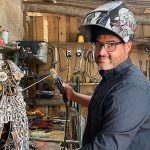Conventional medicine is about the signs and symptoms of disease and how they relate to organ systems. Specialities in medicine like cardiology, urology, and neurology doctors, for example, are taught a wealth of information and given tools that allow them to practice organ-based medicine and diagnosis.
Functional medicine is different as it is a systems-based medicine. This means functional medicine practitioners address the underlying root causes and don’t just suppress symptoms. They explore what predisposes someone to getting sick, whether it is long-term use of antibiotics or a past trauma. As well as looking for ongoing reasons, they will look at triggers, for example bereavement or previous illness where people might say things like, “I’ve never been well since the death of my spouse”, or “I’ve not been well since I got ‘x’ disease.”
With conventional medicine, the doctor is the ‘expert’ and doesn’t have time to engage with the patient’s life story, or sometimes isn’t interested in understanding the ‘whole picture’ behind the symptoms. With functional medicine, patient engagement and participation is key.
Functional medicine is seen as participatory medicine, i.e. one where the therapeutic partnership between patient and practitioner is fundamental.
Functional medicine doctors and practitioners engage with patients to examine their modifiable lifestyle factors. They strive to understand how food, relationships, exercise, stress, environmental toxins and past trauma impact their patients’ health and wellness. When one area of the body gets out of balance, that impacts every single area down to the cellular level. They respect that the body is interconnected and must be treated as a whole system rather than one symptom at a time.
I am a hair tissue mineral analysis practitioner. This type of functional diagnosis detects your body’s mineral status, which gives a really thorough insight into how your body is functioning at a cellular level. If you want to explore your health from a root cause perspective, then looking at your minerals would be a good place to start.
@mineralmojo













